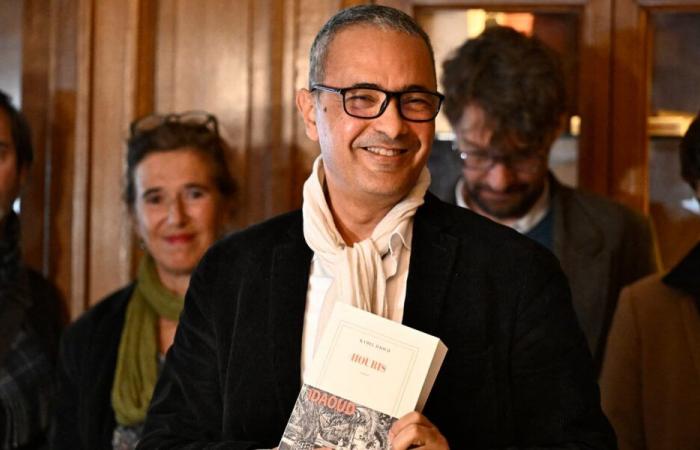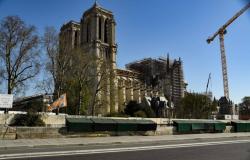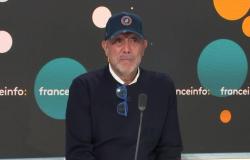
« Houris » is above all the story of a survivor and an exile, that of Aube, a young girl mutilated during the massacre of her village one evening in December 1999, when a thousand lives were taken. This central character, with a broken but stubborn voice, carries within him the memory of a childhood gripped by violence. With his scar running under his chin, Aube embodies a torn Algeria, still haunted by its ghosts. In the intimacy of a monologue addressed to her unborn daughter, she seeks, word after word, to transmit the story that is refused to her, to ward off the specter of oblivion.
Goncourt: The jury says no to censorship, yes to Daoud
The coronation of Kamel Daoud by Goncourt resonates as an act of defiance in the face of the censorship which is plaguing the literary world. Algeria, let us remember, banned Gallimard Editions from the Algiers International Book Fair for having published this work deemed too daring. By awarding this prize to Daoud, the jury affirms, with elegant firmness, the inalienable right of writers to testify, to question and to disturb.
At fifty-three, Kamel Daoud is an exile by necessity. The author left Oran for Paris, not without bitterness, taking on French nationality as a burden and a liberation. “I have Apollinaire syndrome, I am more French than the French », he underlines, quoting the poet who, too, carried within him the nostalgia for foreign lands. In his native Algeria, he is sometimes referred to as a traitor, an intellectual who refuses the ideological constraints and illusions of a decolonial discourse. He stands on the margins, assuming a singular posture, that of a “ exiled by force of circumstances », he said to Pointthe French magazine where he is a columnist, in August.
Born in 1970 in Mostaganem, Daoud cut his teeth in journalism, within the “ Daily newspaper of Oran ». He travels his country in search of truth, confronted with the after-effects of the civil war. “ Journalism is essential, but it will never be enough to tell the story of a war “, he confided to the “ Madame Figaro ». In this sentence, Daoud’s entire vocation is embodied: to go beyond simple observation to delve into the depths of souls, where journalistic language finds its limits and where literature imposes itself. At the dawn of the 2000s, he stood out as an author with “ Meursault, counter-investigation »a masterpiece which earned him a fatwa, a sign of his audacity and his refusal to silence the unspeakable.
« Houris » : A funeral song and a hymn to life
With ‘Houris’ – a term which evokes, in the Koranic imagination, the celestial women promised to the faithful – Daoud launches into a frontal denunciation of the amnesia which surrounds Islamist crimes. As a preface to his work, he places article 46 of the Algerian “Charter for Peace and National Reconciliation”, which threatens with heavy penalties anyone who attempts to dwell on the wounds of the past. This deliberate choice demonstrates his intention to break the shackles of official silence. But Houris is not a simple indictment: it is a quest for redemption, an exploration of the paths that, after chaos, lead to resilience. “ I’m not writing a war, but how we get out of it “, explains Daoud to “ L’Obs ».
The style of “ Houris » is a torrent of words, a fiery prose, burned by the urgency to say. “ A long polyphonic song », note « The literary Figaro »like a river that roars and carries everything away. Daoud’s writing, dense, abundant, unfolds in confidences and outbursts, drawing an unpredictable and fascinating rhythm, like this civil war which turned everything upside down.
By attributing the Goncourt to “ Houris »the jurors made the choice of memory, of the duty of truth, of fidelity to the voices which refuse to sink into oblivion. Kamel Daoud stands, through this work, as a smuggler of memory, a writer for whom words are weapons and memories, ramparts against erasure. “ Houris » is a cry, a literary explosion which reminds us that certain pains, even buried, always end up resurfacing. With this novel, Daoud offers us a moment of truth, a fragile bridge between shadow and light.
*“Houris”, Kamal Daoud, Les éditions Gallimard, 411 pages, 2024, 288 Dh.





